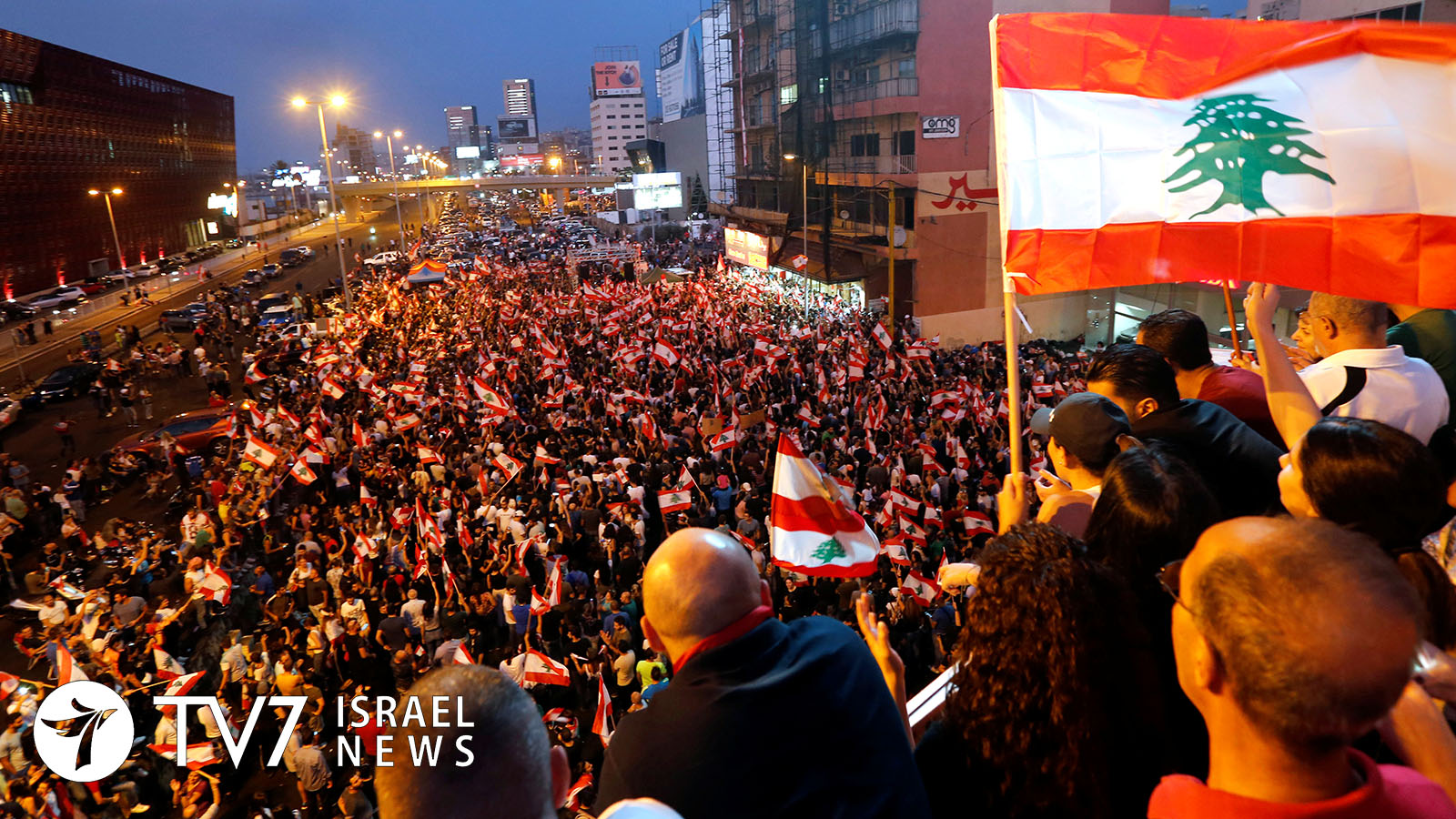Lebanon today saw an eighth consecutive day of unprecedented protests against the political elite, in nationwide demonstrations that have paralyzed the country for more than a week with no sign of abating.
Leaders in Beirut are now discussing a possible government reshuffle, in further attempts to assuage public anger. The country’s President Michel Aoun is expected to speak later today.
With a population of 6 million people including around 1 million Syrian refugees, Lebanon has been swept by protests against politicians blamed for corruption and waste in a state mired in debt and economic crisis. The demonstrators have been blocking the main highway linking the capital with the northern sector with garbage bins and their bodies. One 27-year-old female protester identified only as Lynn told Reuters that “We’re here to block the road peacefully, not doing anything wrong, people can still get around.” She added that “we’re here because we want people to go on strike, this is a civil right, we have to protest, we have to stand up for what we need, and one of the things we need is not to have a government that is literally stealing everything from the people.”
Another young woman called Inas said “We are blocking the road for many reasons, for my children that I want to raise in Lebanon, for my mother and father so I can secure them in their old age, because when I look at them, I question how will they continue their lives, if I cannot raise my children now (economically), how about if my mother of father wants to go to a hospital , what can I do, how can I pay for them if they got sick and had to enter the hospital.”
Last night, mass crowds waved flags and set off flares. The screening of a film was staged at an unfinished cinema known as Beirut’s iconic ‘Egg’ building initially built in 1965, in what they described as an effort to restore public buildings to the people. Despite incremental weather, many slept in the city streets. Ali Ismael vowed, “We certainly are continuing despite the rain, the attempts to open the roads and the suppression that people are facing in the different areas.” Adding “We are continuing and we will remain,” Ismael issued a call for other protests “to continue across the country, and continue in confronting this regime wherever you can.”
In Tripoli, protester Alaa Tizani told the London-based news agency that “We call upon the international community if there is any way to remove all (the leaders) away from us so we can build a future for a new Lebanon.”
The demonstrations had initially begun over a tax imposed on WhatsApp voice calls, which the government swiftly cancelled. Demonstrations then expanded as an expression of the Lebanese public’s anger over the country’s chronic economic stagnation, endemic corruption and a lack of basic public services. Prime Minister Saad al-Hariri promised to implement new measures to ease hardship, but acknowledged the new measures might not be enough to meet the protesters’ demands. His proposal includes a symbolic 50% cut in the salaries of current and former presidents, ministers and lawmakers; as well as reduction in benefits allocated to state institutions and officials. He also vowed that the central bank and financial sector would help reduce the national deficit by some $3.4 billion, while the antiquated electricity grid would be revamped and telecommunications sector overhauled.
Earlier this week, many demonstrators chanted “Revolution!” and voiced suspicion over Hariri’s speech. “They are trying to fool us, they think we are a bunch of sheep. It is enough, let them leave us alone, we need a new life,” said protester Hamad Taleb.
“We are used to Hariri’s promises, before the elections he promised 900,000 jobs,” said Activist Assad Thebian, going on to say, “they all promised reforms and to fight corruption. And here we are a year and a half later – what a lie! They claim to change and they are the ones who are corrupt themselves.”
-By Erin Viner
